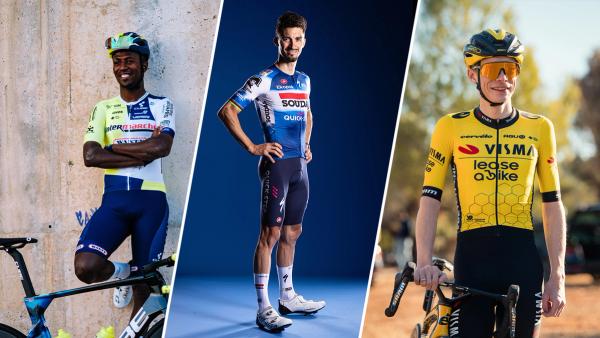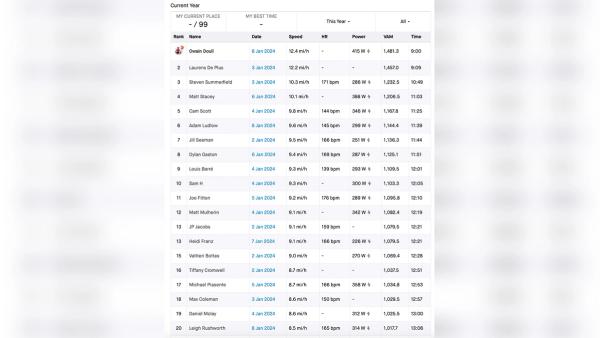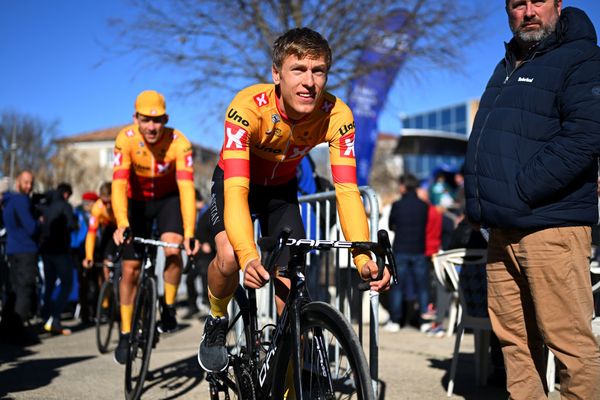John Degenkolb: Never say DNF
The German sprinter, who holds the record for the most race days without a DNF, tells GCN how he got there and why quitting a race is never an option
Pete Trifunovic
Digital Content Creator
© Velo Collection (TDW) / Getty Images
John Degenkolb last abandoned a race in September 2021
John Degenkolb has gone 142 race days without a DNF, the most in the men's pro peloton. The German Classics rider last abandoned a race on September 26, 2021, which was the World Championships road race in Flanders. A nasty crash forced the German to step off the bike that day, a theme apparent with almost all of his rare DNFs during his 13-year stint as a professional.
The 34-year-old’s record for races he failed to complete stands at 11 DNFs, six DNSs and one OTL (Outside Time Limit). It’s an impressive feat considering that Degenkolb has completed 938 race days during his career, something he describes as, “pretty good numbers, I guess".
Of course, any statistic can sound impressive in isolation. Yet the dsm-firmenich man sits nine clear of the next-best rider in this category, Movistar’s Nelson Oliveira who has gone 133 race days since April 2022 without an abandonment. The Portuguese rider has more than three times as many DNFs in his career too. When you take into account Degenkolb’s Classics prowess, it makes this statistic even more remarkable.
So why does ‘Dege’, as he is affectionately known by fans and teammates, think he’s developed this ‘never say DNF’ attitude?
He puts it down to his no-nonsense approach to racing: “Personally, it’s actually never an option to arrive at a race [and leave early]. If I go to a race, I want to race to win. But also for me, it's never an option to quit the race before.”
Quitting races early feels strange
Born in East Germany just 10 months before the fall of the Berlin Wall, Degenkolb has, consciously or not, gone on to evoke characteristics often associated with the former Eastern Bloc country. His resilient nature and tough mentality have seen him prove himself as both a Grand Tour sprinter and a Classics specialist.
A stage win in each of the Grand Tours, with 10 of the 12 arriving at the Vuelta a España - arguably the least sprinter-friendly of the three-week races - is backed up by Monument wins at Milan-San Remo and Paris-Roubaix, both in 2015.
Degenkolb has proven time and again that he’s able to fight for the win on some of the hardest parcours on the cycling calendar. However, he accepts that some races - and perhaps not the ones you’d expect - will always get the better of him.
“In my career, there were some days and some races where I just wouldn't be able to finish the race. For example, I tried, even twice, going to Canada, to the races there. The first race in Quebec is still doable for a rider with a profile like me. Then in Montreal, I had to DNF twice, because the race was obviously too hard.”
Pragmatically, the German added: “Obviously, you cannot always choose your programme on that [factor] because you have bigger goals than only finishing races. In the end, I'm not getting paid to finish races, I'm getting paid to perform in races.”
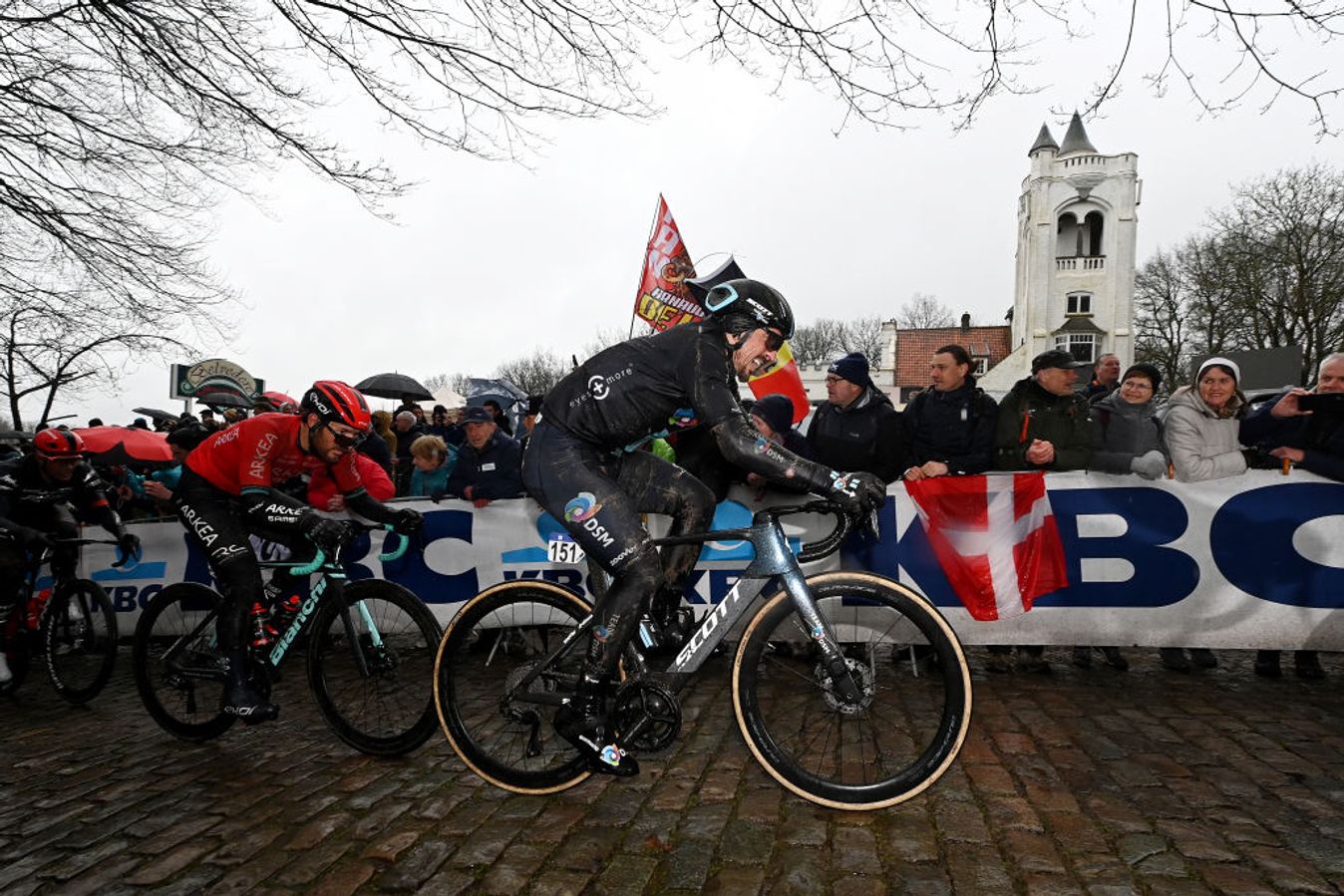
© Velo Collection (TDW) / Getty Images
Few can grit their teeth and suffer through a race like Degenkolb
Nonetheless, quitting is not an option for him and he even regrets the one occasion when he purposely left a race early.
“There was only one single time in my entire career where it was the plan to quit the race early - when I did the Giro d’Italia in 2013. The plan [was] to only do the first part of the Giro, try to win a stage there, which we achieved, and quit the Giro early to go to altitude training in preparation for the Tour de France,” he explained.
A win on stage 5 in Matera, Italy’s city of stone, ensured the plan wasn’t for nothing but Degenkolb, now often a domestique himself during his twilight years, didn’t enjoy leaving a race so soon.
“Even though everything went according to plan, it was a strange feeling. It was not an enjoyable feeling to leave the guys behind. And I am always trying to avoid that same situation again because it is something I definitely had to experience myself and then I didn't like it,” he admitted.
“When there's a DNF in my palmares, then there was a reason.”
It isn’t just the teammates that he feels for when a rider departs midway through a stage race, though. Degenkolb’s wife Laura works for the organisation behind Eschborn-Frankfurt and the Deutschland Tour, allowing him to see things from the other side of the barrier.
“That’s also something many guys are not taking into account, it's not only important to see the situation from the rider or team’s perspective, but also organisers and fans. I can imagine that in a big race, people go to the race to see a particular rider and if he for no reason left the race. That also gives a strange image.”
The lure of the Classics
Degenkolb has a palmarès awash with Classics and semi-Classics victories. He took the title at Eschborn-Frankfurt in his debut season as a pro, before winning the likes of Paris-Tours, Paris-Bourges (twice), the Vattenfall Cyclassics, and Gent-Wevelgem before really affirming his place in the spring Classics’ almanacks with victories at Milan-San Remo and Paris-Roubaix in the space of just three weeks during 2015.
His success in one-day races, where it’s often the case that you’re either at the front of the race challenging for the win or spat out the back with little hope of reprieve, and no in-between, makes his abandonment record one to be admired.
The German is all too aware of this fact when he adds: “I've collected quite some Classics races in my career and [even] to finish them you have to already be on a really high level, that definitely shows my determination for these races.”
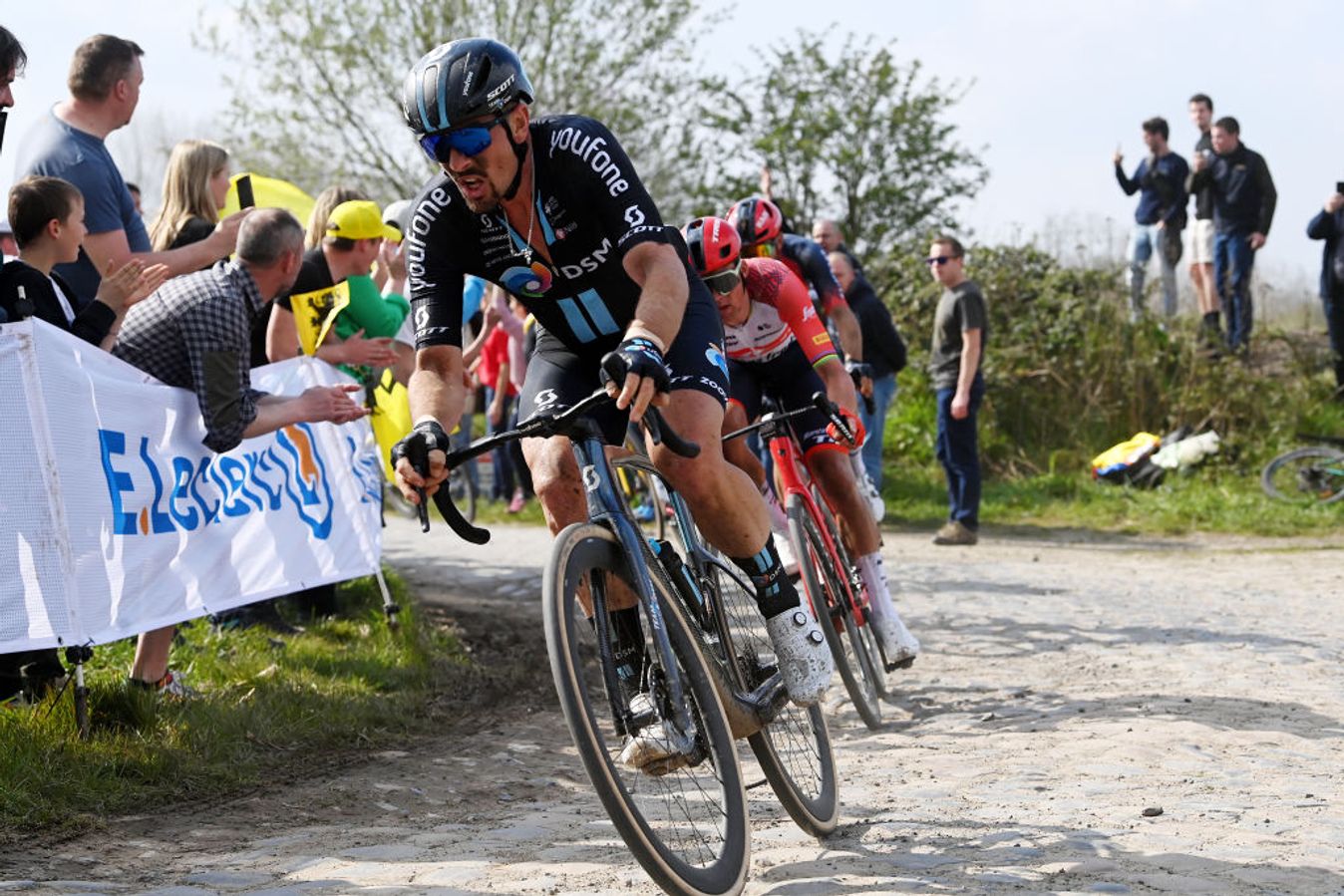
© Velo Collection (TDW) / Getty Images
Degenkolb was one of the strongest riders at 2023 Paris-Roubaix but couldn't claim a second victory
He doesn’t hide the fact that these races have helped to shape his career. “They’re something I really enjoy the most over the whole year, these one-day races. It started at the beginning of my career when I performed really well in one-day races and even though I'm not in the winning position so much anymore, like in the past, I'm still performing in the one-day races and that's definitely something special for me.”
When asked if his impressive record is down to the simple fact that he has a higher pain threshold than other riders, the man from Gera is quick to play down any superhuman strength he’s thought to possess.
“I think we all have quite a high pain tolerance and that's what we get trained and taught over all these years. You have to be able to suffer over these really hard points.
“In general, Classics riders have to go through really hard moments and hard circumstances when you see the weather conditions. I've had horrible weather conditions over my career,” Degenkolb adds, listing early season races in Catalonia, a snow-swept Milan San-Remo in 2013 and an extremely windy edition of Gent-Wevelgem in 2015, as some of his worst experiences with the elements.
Despite having held his arms aloft in the previous edition of Gent-Wevelgem, the 34-year-old was unable to avoid a DNF in 2015. With the number one on his back, Degenkolb was motivated to perform and felt in good shape but the risk of crashing due to high winds became too much of a gamble as the race went on.
“I was constantly touching too much wind. I was actually afraid to ride on a wheel to protect myself from the wind because I was afraid that the guy in front of me was [struggling] to ride straight and then we'd crash.
“At a certain point, if you waste your energy like I did, there is nothing left. And that's why I got dropped,” he admitted. While not finishing the race that day, Degenkolb still avoided stepping into the car. He preferred to keep his head up and ride back to the finish through Ypres with his then-teammate Koen de Kort. A fortnight later he conquered the Hell of the North.
Finishing races now acts as a dual purpose for Degenkolb
As perfectly exhibited during the early months of 2015, but also throughout his entire career, Degenkolb believes that racing to the line serves a purpose even when he’s not in contention for the win. It helps him to know that his mind and body are in the right place whilst giving him confidence and motivation for the next race.
“Cycling is also a mental game and if you doubt yourself, your condition, or whether you're able to finish the race or not then you lose physical strength automatically.
“I think it's really important to keep the head up and keep the focus, the motivation. Then you can keep performing, even though your body and your legs are getting empty already,” he added, speaking from the experiences of over a decade in the WorldTour.
From the motivation gained by completing races to the motivation to complete races, Degenkolb now admits that the record is already on his mind when the legs start to suffer.
“I remember in the Münster this year [at the Sparkassen Münsterland Giro] on October 3, I was really struggling with the weather conditions and it's like, ‘I can't stop now, I can't, I have to keep on going’,” he said.
“It's an even bigger motivation now to keep on going and to keep the streak running but yeah, at one point, it also has to stop, I'm aware of that. But if I can extend it, I will definitely try everything to do it.”
How long Degenkolb can keep the streak alive remains to be seen, but two things seem to be certain. Only a serious injury or illness will force him off the bike, and you'll be hard-pushed to ever see him race in Montreal again.
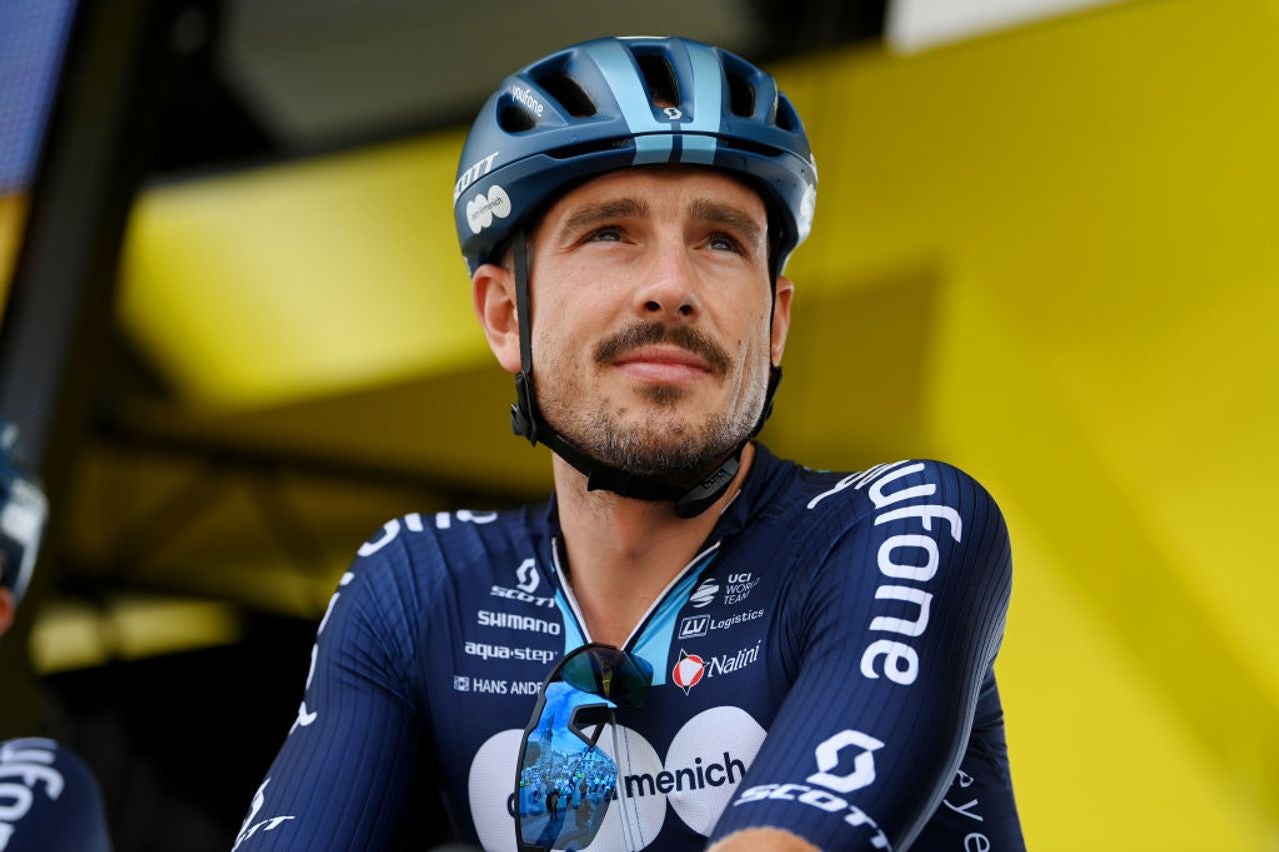









.webp?w=600&auto=format)
